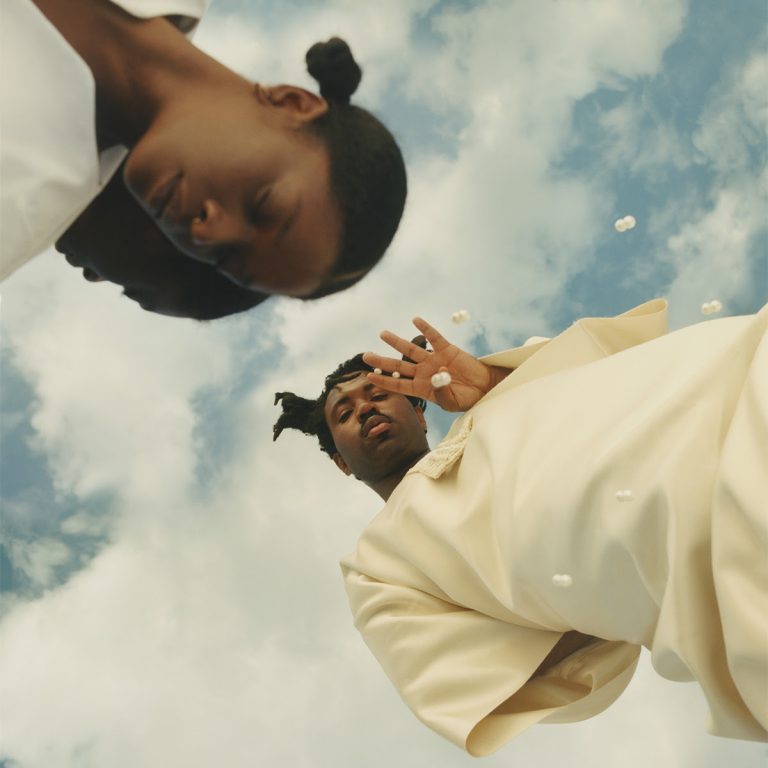Jonathan Livingston Seagull is a 1970 allegorical novella by Richard Bach in which the titular bird looks to break away from his flock and their closeted thinking. He wants to prove that it is possible to fly higher, fly faster and stretch the boundary of what it means to be a seagull. While the story’s simplistic message of individualism and self-belief might seem a little basic these days (the dreadful 1973 film adaptation was deservedly the subject of much piss taking on a recent episode of the How Did This Get Made? podcast), it is a message that has resonated with Sampha since his brother read it to him as a child. On his second album LAHAI, it’s referenced directly in lead single “Spirit 2.0”, a central track shares its name, and there is a motif of flight and ornithological references throughout.
For Sampha, there is a purity to the idea of flying free, above and away from daily weights and worries; of connection with greater power somewhere beyond the earthly realm. LAHAI begins with Sampha waking from a dream and the rest of the album he coasts on breezes, buffeted by time, memory and grief – but pulled on by belief instilled by friends and family, both living and passed.
These duelling forces are wonderfully rendered in the sound palette that Sampha has pulled together here, with production assistance from El Guincho on a number of tracks. The presence of myriad other talents including Yussef Dayes, Yaeji, Laura Groves, black midi’s Morgan Simpson – to name just a few – emphasises the album’s underlying theme of communality.
On his 2017 debut album Process he told us how no one knows him like the piano in his mother’s home, but the instrument was then sidelined for much of the remainder of the album. LAHAI corrects that by including piano on every track – though not in such a stately manner, but instead chopped up or interwoven with technical African rhythms, dextrous synth use, subtle strings and carefully deployed vocal layers. Bass is a minor factor here, and that leaves plenty of space to appreciate the richness of Sampha’s gorgeous voice as it swoops to those lower tones or soars high in moments of release or anguish.
Lyrically, Sampha is consistently trapped in a cage of his own remorse and regret, lamenting the lack of a time machine. However, as he expresses in “Spirit 2.0”, there is plenty around to support him; “light will catch you / love will catch you / spirit gon’ catch you” he summarises, before developing the thoughts further in later tracks.
Romantic love is a constant, explicitly so on standout “Suspended” with its memories of walking around Florence and his significant other’s ability to ease his troubled mind. “Inclination Compass” uses the bird metaphor to simple but great effect as he pleads for reconciliation with his lover by suggesting “how about we fly towards the source again / let’s switch from cold to warm again”, his all-encompassing voice resonating the warmth he desires. The neo-soul of “Jonathan L. Seagull” finds him coasting on drizzles of violin away from the confusion of the world to “puzzle into your embrace” where other concerns seem miles away.
It is the twin powers of time and spirituality that are Sampha’s poles for the most part, though. Where Process was rich with his grief at his recently-departed mother, LAHAI continues that feeling but with greater distance – and at times, despair. The clipped-cadence rap of “Satellite Business” finds him stressing over the seconds ticking by and the memories fading. The interlude “Time Piece” features spoken French from Ibeyi insisting that time doesn’t exist before the following track “Can’t Go Back” finds Sampha continually bumping up against the title’s empirical truth despite his heart and mind’s desire. Regret comes hand in hand with this frustration at time’s unrelenting march; “What If You Hypnotise Me?” finds him wishing he could make the ‘what ifs’ fly away. On “Only” he’s sticking his fingers in his ears to block out the stresses and strains that come with mortal life; “I’m moving on faith / and faith only” he determines.
And it is his belief that consistently pulls him through these moments; the concepts of faith and spirit crop up consistently as lights among the confusion. This most breathtaking examination of this is “Evidence”, a sprightly choral pop number where he finds clarity in the faces of his loved ones: “without the evidence / you’re evidence enough for me” he states, simply, honestly and powerfully.
Communal connection and love are the framework on which all of LAHAI’s doubts, dreams and wishes hang. It comes to the fore in the closing “Rose Tint”, where the production reaches its spaciest, the piano a delicate twinkle in the background while Sampha’s thoughts disassociate. He admits he’s been “lost in my own world / preoccupied with my own hurt”, but he wants to spend more time drinking and dancing with his friends and family. “I found this stretch of coast” he sings, fluttering above the perfect setting he’s dreamed up with his community around him; “Everybody gather round / Gonna take this picture now” he commands. This is LAHAI’s ultimate message: life and living may be far from perfect, but when Sampha connects with his loved ones – no matter how ephemerally – it feels like the clouds have cleared and the sky is open to soar high and free. It’s a moment worth savouring forever.


